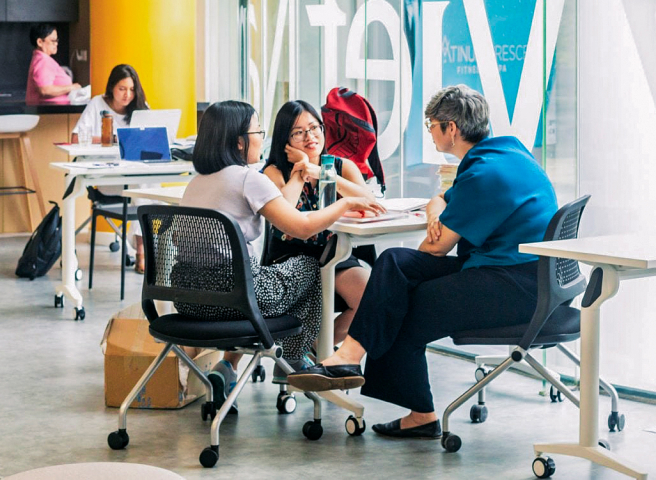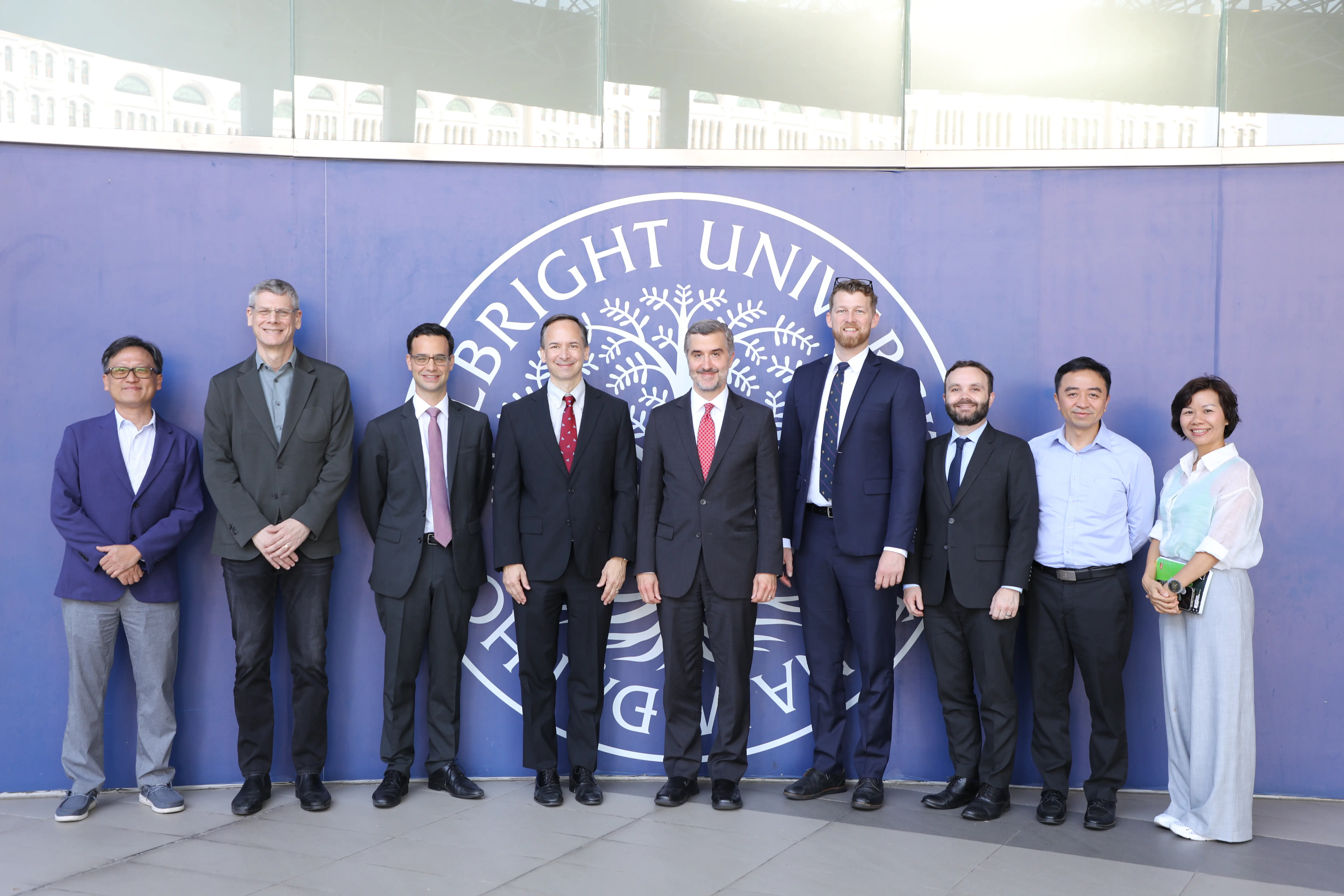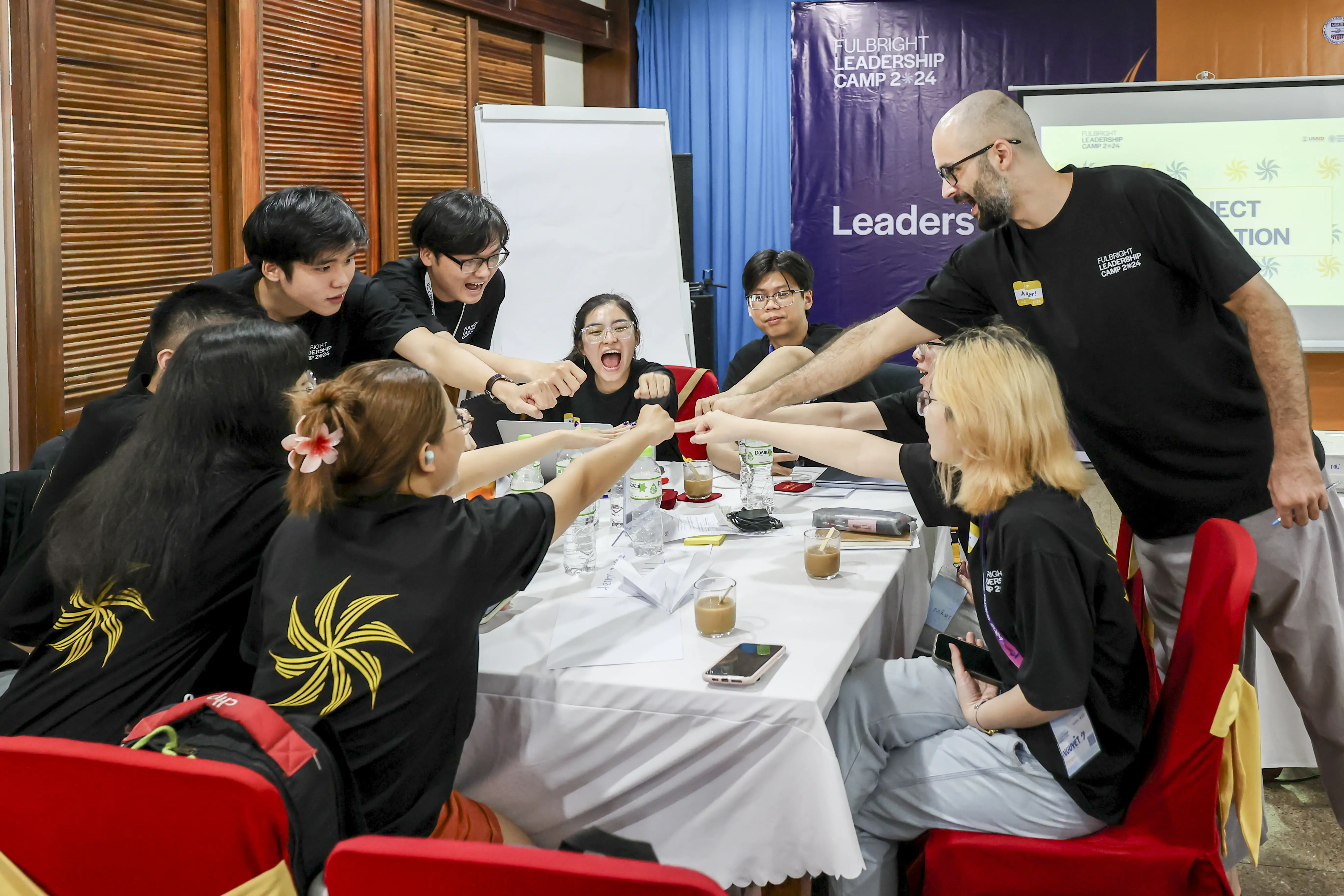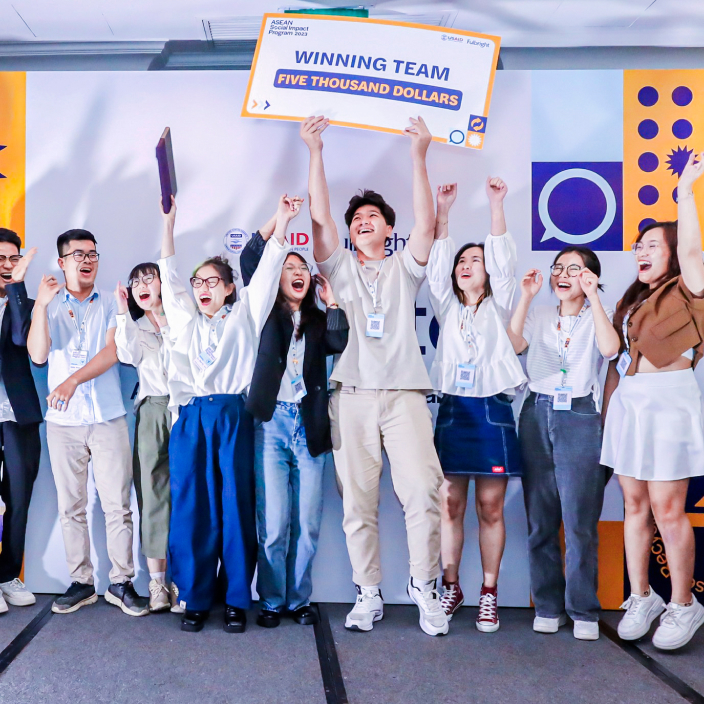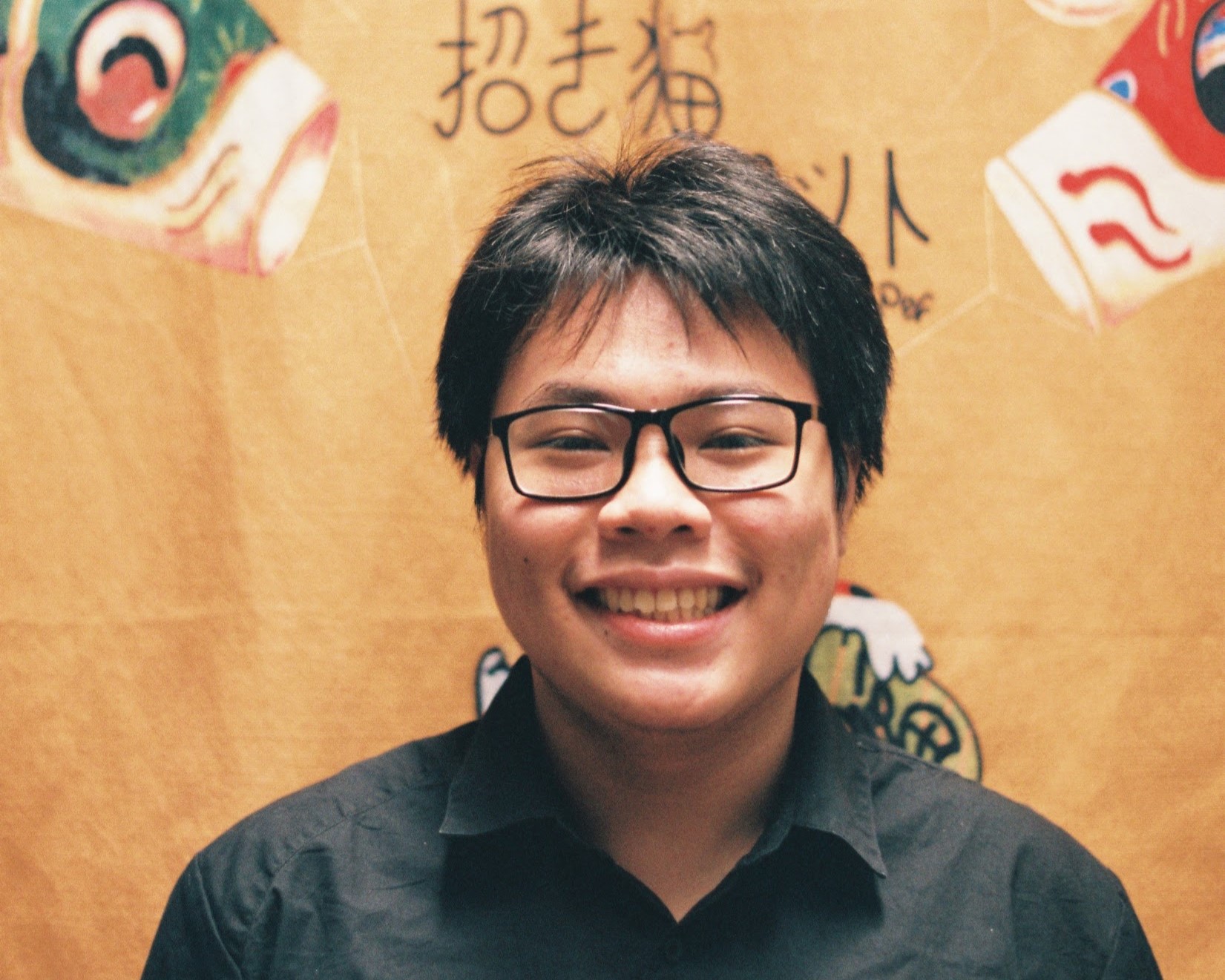
Fourth year student Nguyen Duy Hieu at Fulbright University Vietnam aspires to become a neuroscientist. A scholar and researcher at heart, Hieu follows multiple disciplines at once. He currently majors in Integrated Science, with a focus on Biology and Neuroscience, and minors in Social Studies, focusing on linguistic anthropology. His special research interests lie in learning about the mechanism of sensation, learning and memory, sleep, and neurodegenerative diseases. Hieu has just spent this summer at the National Institute for Basic Biology (NIBB) in Japan working on time-lapse imaging of cell cycle progression using FRET-based biosensors.
Hi Hieu, could you lead us through what time-lapse imaging of cell cycle progression is?
Sure thing! Time-lapse imaging of cell cycle progression studies cellular life cycle. To do this, I tagged different protein expressions with fluorescent proteins and documented the cells reactions towards stimulants and how their structure changes as they age.
One fun thing that I did within the scope of this research concerned the optogenetic control of cellular morphology. When I shone light onto HeLa cells, right away its ZO-1 proteins translocated to the cell’s membrane. The speed of reaction was at the blink of an eye. I was truly blown away.
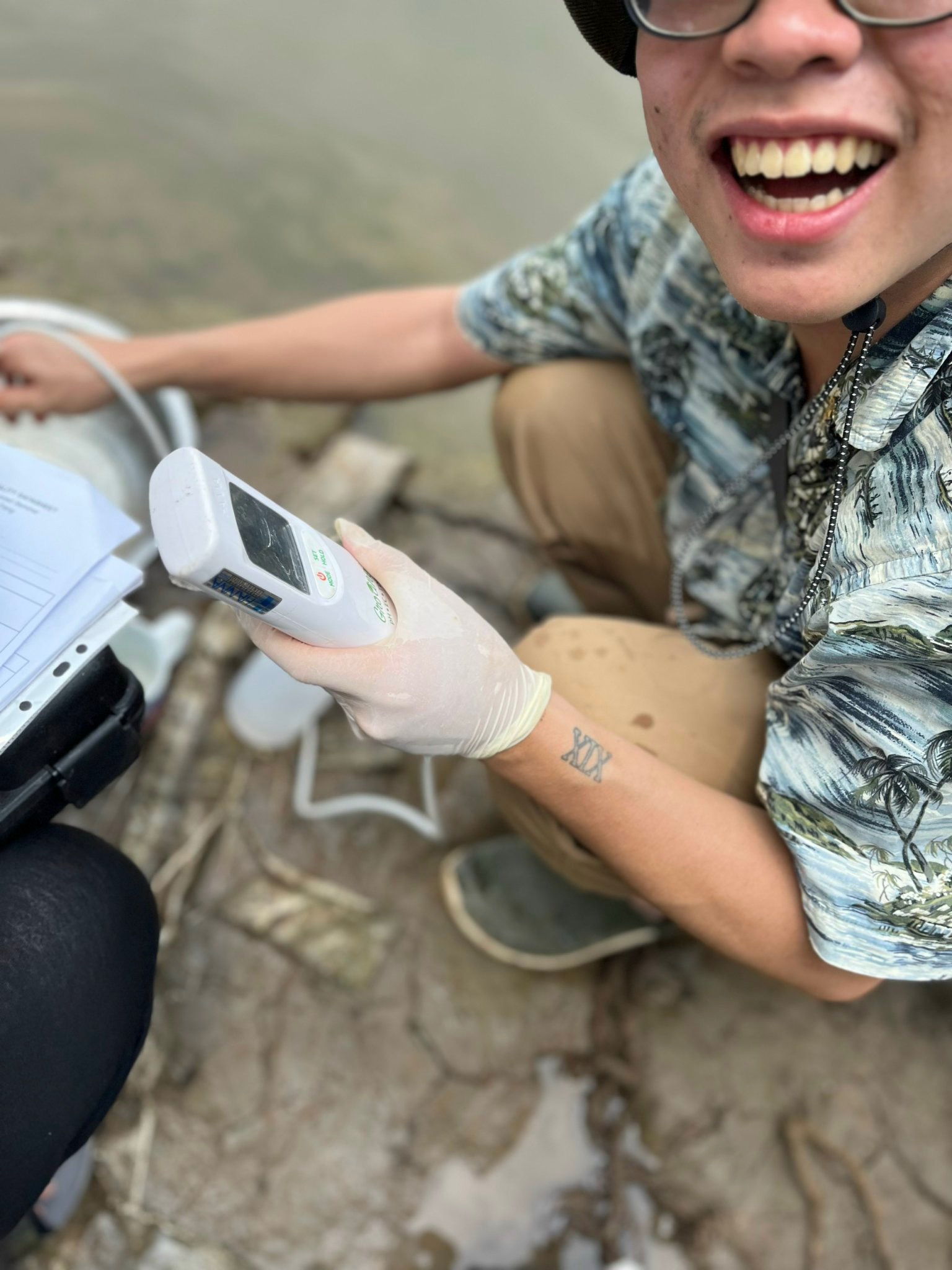
Hieu collecting and measuring attributes of a water sample for his research project
What brought you to NIBB and what did you learn after your time there?
The National Institute for Basic Biology is a research institute in Okazaki, Japan. This is a prominent research institute in Japan with frequent publications in the world’s top scientific journals, including Science, Nature, and PNAS USA. Dr. Nguyen Thi Hong Dung, Fulbright’s faculty in Integrated Sciences, connected me with this one-of-a-kind opportunity. Dr. Hong Dung used to do research at the National Institute for Physiological Sciences (NIPS) which was adjacent to NIBB. She recommended NIBB to me because she knew the place to be open and welcoming to international students, and because they do great research that undergraduate research assistants can learn a lot from. This turned out to be very true in my case.
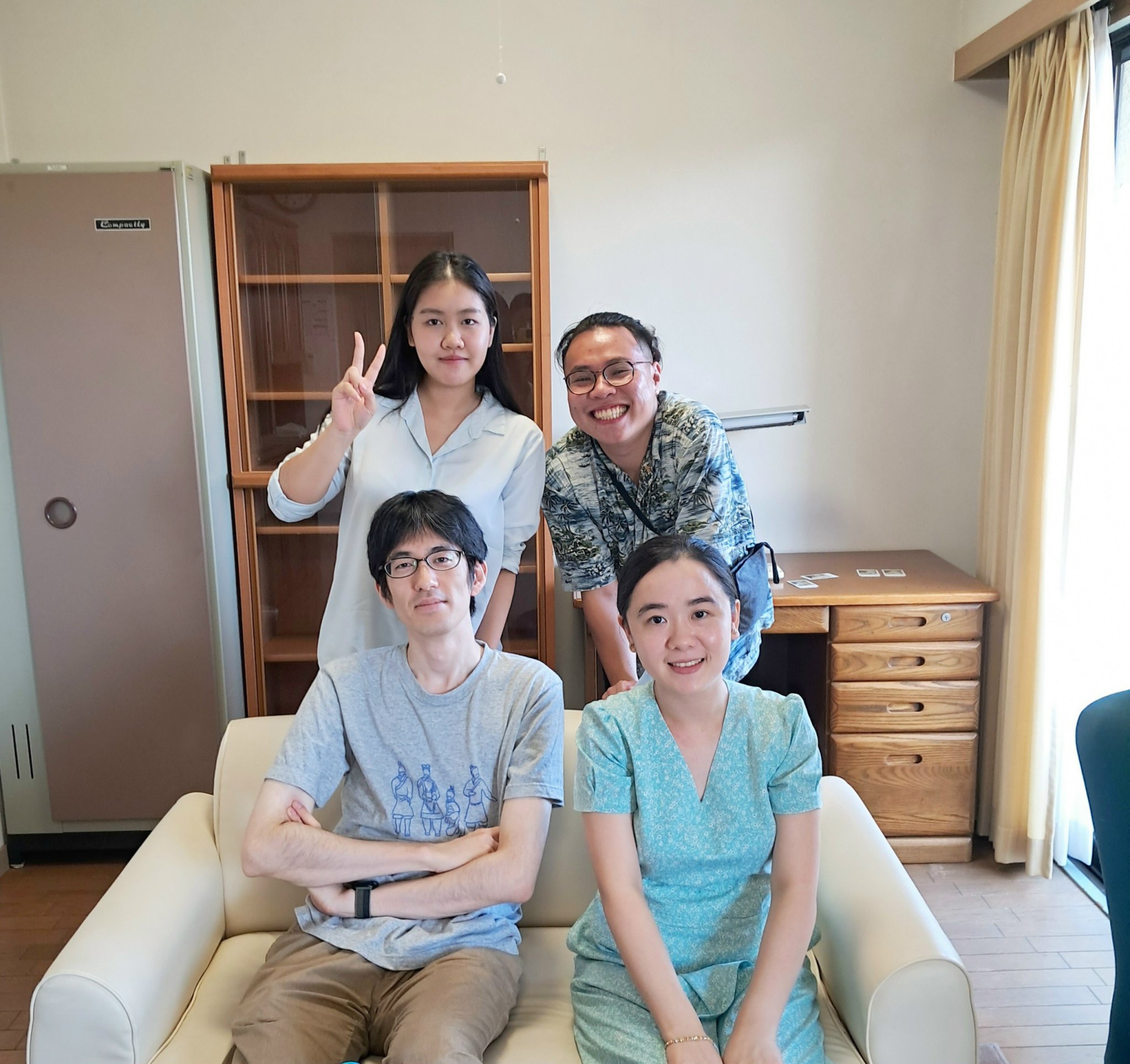
Dr. Nguyen Thi Hong Dung (seated, right), Fulbright’s faculty in Integrated Sciences, connected Hieu with this one-of-a-kind opportunity.
I had a great time at NIBB. I got to do science and learnt both wet-lab and dry-lab skills. Specifically, I appreciated the true scientific spirit that everyone at the lab cultivated. I learnt to be respectfully skeptical and to think critically to ask the right questions. I learnt to pay great attention and care to my work. The researchers at NIBB taught me from the smallest details, such as efficient pipetting and sample labelling, to the abstract concepts in science, academia, and life. I reviewed introductory knowledge and got updated on the cutting-edge techniques in biology, from simple gel electrophoresis or Western blot to complicated cell imaging processes. This internship has allowed me the opportunity to reflect on my research career. I’m driven now more than ever to become a researcher and I am more than ready to pursue a scientific career in the future.
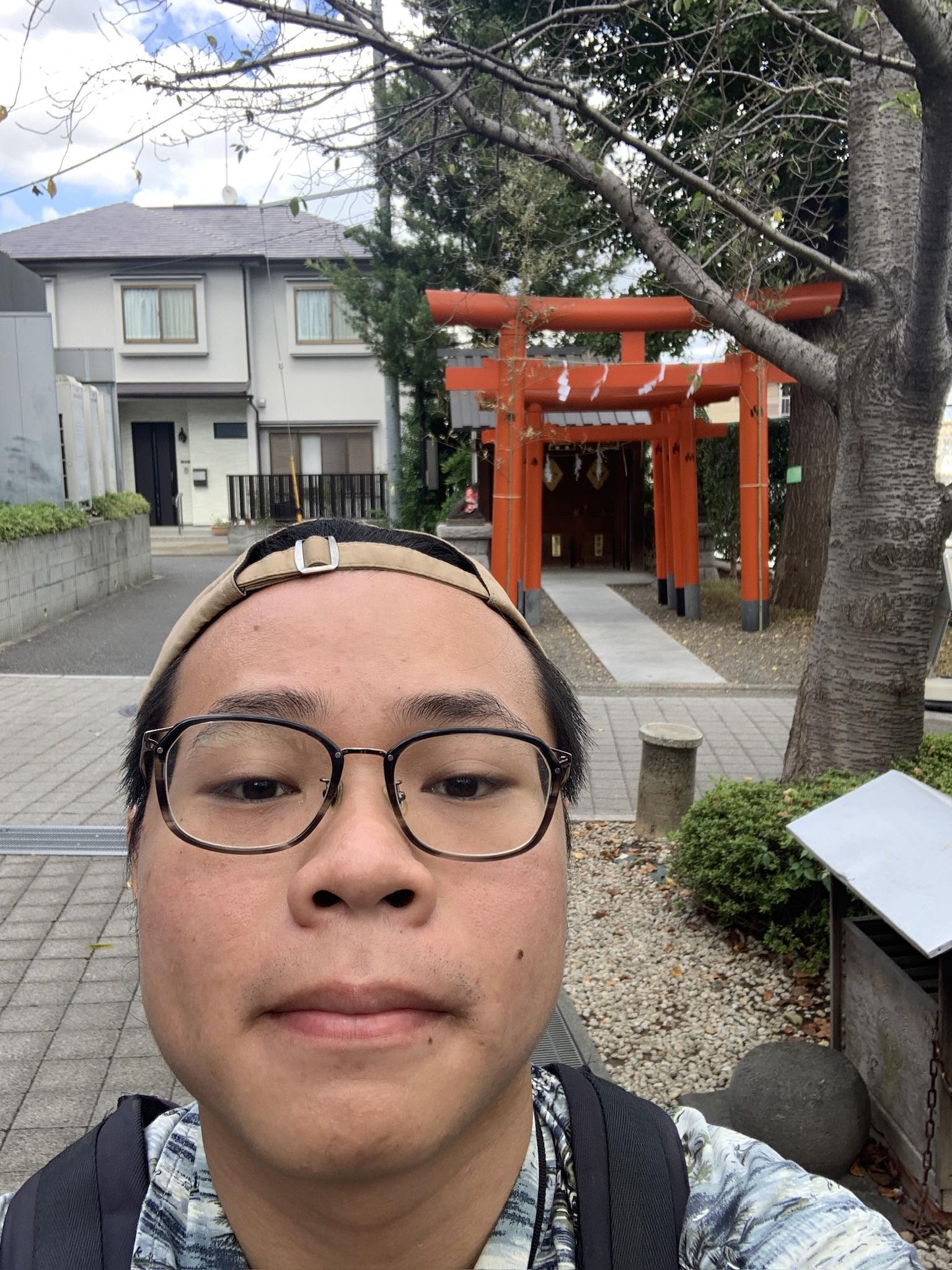
“This internship has allowed me the opportunity to reflect on my research career. I’m driven now more than ever to become a researcher and I am more than ready to pursue a scientific career in the future.”
What preparation at Fulbright became rewarding when you engaged in scientific research at NIBB?
I gained the right toolkits from my study at Fulbright. Through the coursework at Fulbright, I now understand the fundamental principles of living cells, and how we, as a collective group of organs, respond and adapt to stimuli from the environment. The mindset and skillset from these courses at Fulbright provide necessary toolkits and knowledge for me to conduct my research at NIBB.
Two of my favorite classes in the natural sciences at Fulbright are Principles of Neuroscience, and Research Methods. Principles of Neuroscience was my first engagement in in-depth analyses of how neurobiological factors influence the way we learn, act, think, and feel. What I like the most about the class is its strong emphasis on interactive, interconnected relationships among neurobiological, behavioral, and mental phenomena. With Research Methods, I had the chance to “co-design” the course with Dr. KinHo Chan and 8 other fellow peer students. Together, we designed and adapted the course content, assessment framework, class activities and projects so as to make it accessible to students with different K-12 knowledge backgrounds. It was a very meaningful experience to me!
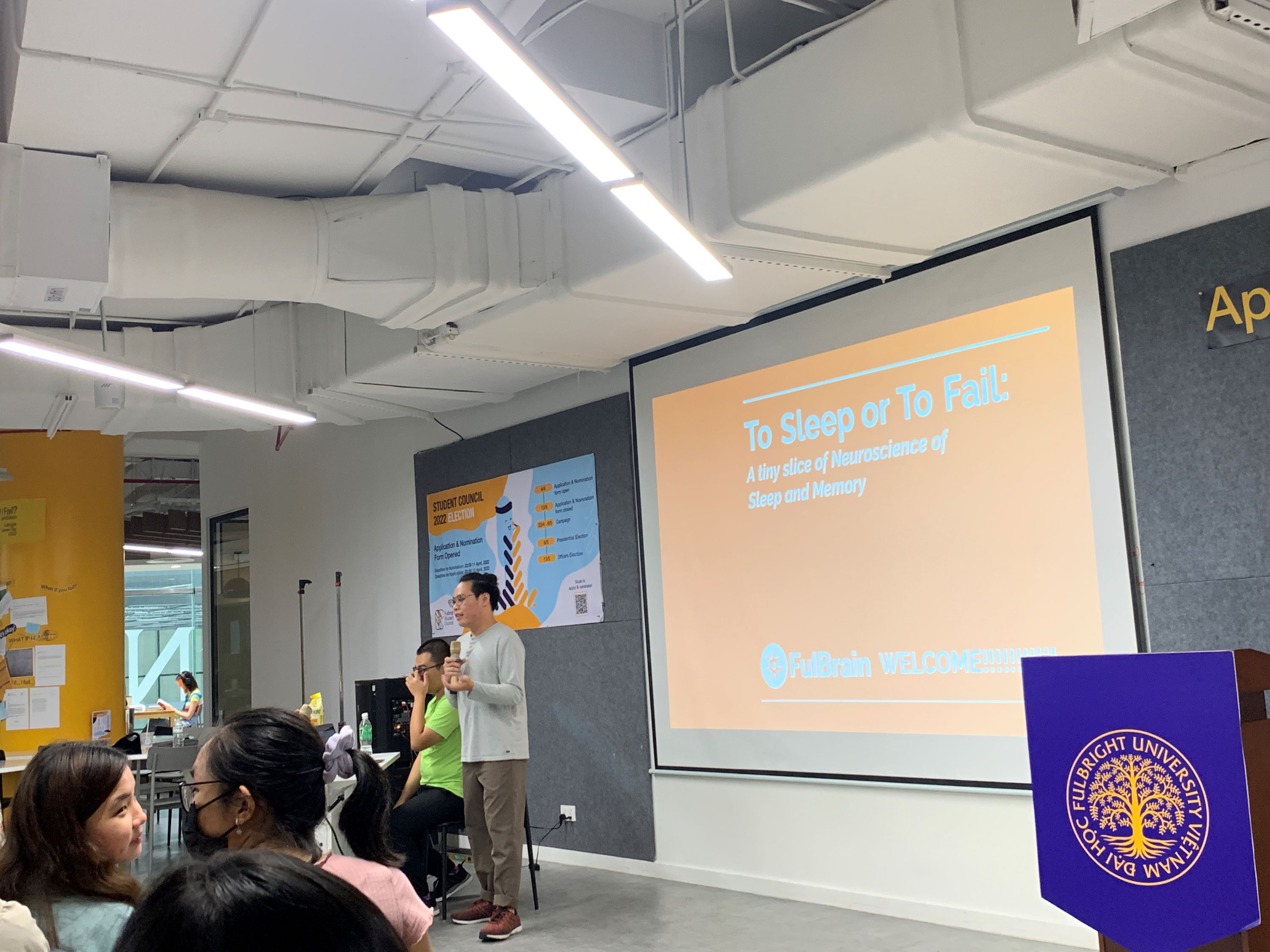
“I gained the right toolkits from my study at Fulbright. […] The mindset and skillset from these courses at Fulbright provide necessary toolkits and knowledge for me to conduct my research at NIBB.”
What does the future look like to Nguyen Duy Hieu?
Right now, I’m focusing on my capstone project. I’m using a computational technique in chemistry and structural biology called Molecular Docking to identify the binding sites between a drug molecule (ligand), and a protein (receptor) in the human body. The protein that I focus on is TRPM5. This is an ion channel that plays a significant role in sweet sensing and insulin secretion. These processes have always been known to be impaired in Type II diabetic patients. Recently, scientists have identified a class of compounds that can potentially activate TRPM5 ion channels, thus helping regulate insulin secretion. My project will identify the interaction points between them.
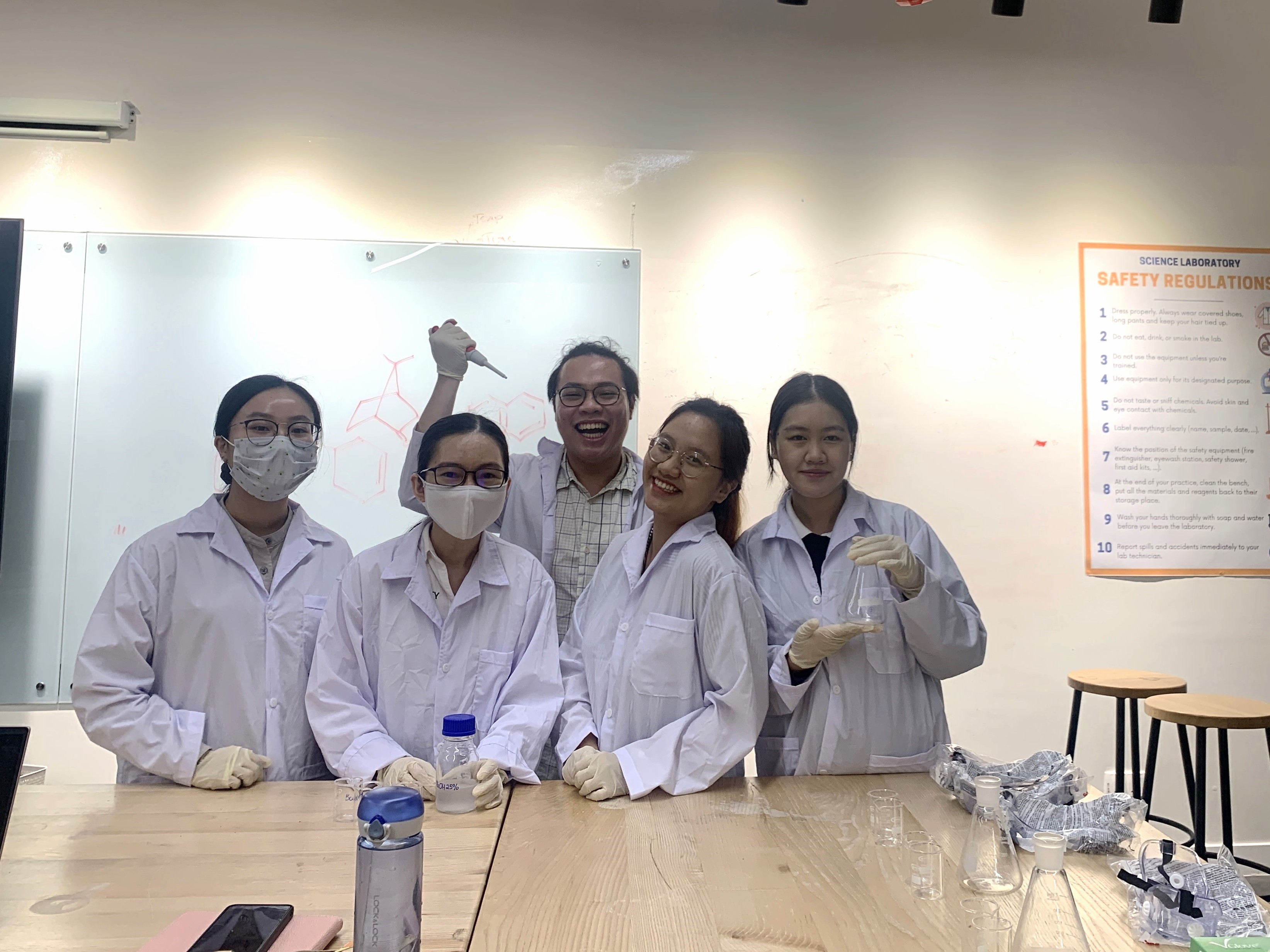
Hieu and classmates in a lab session with Dr. Nguyen Thi Trang (second from left)
Thank you, Hiếu, for this insightful interview and we wish you all the best on your graduation project and future career!
